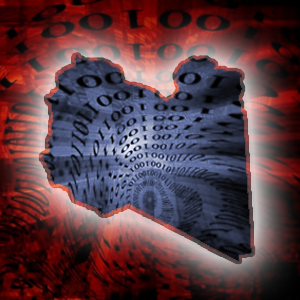 NEWS
NEWS
 NEWS
NEWS
 NEWS
NEWS
![]() Libya’s web connectivity appears to be slowly coming back online after a six-month blackout, but the access was then taken back again after some hours. The state-run ISP restored the Internet connectivity for Libyan citizens early Sunday. However, local residents have complained of patchy consistency with the Internet connection coming and going.
Libya’s web connectivity appears to be slowly coming back online after a six-month blackout, but the access was then taken back again after some hours. The state-run ISP restored the Internet connectivity for Libyan citizens early Sunday. However, local residents have complained of patchy consistency with the Internet connection coming and going.
From early Sunday, there was lots of buzz started floating on Twitter and on other reports. “Welcome to all our brothers & sisters from inside Tripoli on Twitter. Internet returns to them first time in a long time! #Feb17 #Libya,” said in a tweet posted by the National Front for the Salvation of Libya.
Renesys, a New Hampshire-based company that monitors Internet usage, reported a message posted on the Libya Telecom & Technology website, “Congratulations, Libya, on emancipation from the rule of the tyrant.”
“Bandwidth was scarce, but DSL service was back,” Renesys said in its blog. “People started Skypeing with friends and relatives, some reporting hearing live gunfire in the background as their VoIP calls began to connect.”
Internet connectivity was down again after some hours as it had come back on. Renesys reported, Libya’s main Internet router provider Libya Telecom & Technology, had been removed from international routing boundary making them unable to communicate with the outside world.
Gadaffi’s government in early March pulled the Internet in an attempt to suppress rebels, which most other governments have done as a weapon in recent past. In Egypt, the Internet was shut down for five days when protest against the ousted president Mubarak was started.
Soon after the Internet was restored, anonymous hackers (a group calling itself Electr0n) snuck in and defaced the country’s domain name registry nic.ly. The hackers posted an image on the site’s homepage of the rebel flag with a message “bye bye Gaddafi, Feb 17 Libya”. February 17 was the date when Libyan protestors started demonstrations against the Gadaffi government and the security forces loyal to Colonel Gadaffi.
Hacking has become a growing social and political armament for hackers in the Arab world and other parts of world. Turkey is one of the favorite destinations for Anonymous hactivism mainly because of its unauthorized suppression of information. The hackers as part of their AntiSec movement targeted governments, law enforcement, and corporations in the same line as LulzSec targeted corporate sites in recent times. Anonymous trampled over 74 Turkish websites and released data from over 100 websites (mostly Turkish government sites) to protest against the new filtering scheme.
Anonymous has hacked the web pages of the Syrian Ministry of Defense and posted message about the massacres occurring in that country. The retaliatory move was done against the brutal regime of Basher al-Assad as the defaced site read.
About 91 websites were hit including 51 government websites, the industry regulator, the Malaysian Communications and Multimedia Commission, when Anonymous hactivists targeted most of the Malaysian government controlled website. Anonymous called it as ‘taking away basic human rights’ and blocked access to The Pirate Bay, Wikileaks, movies and television shows.
BART’s webpage (Bay Area Rapid Transit), the State of California government agency that runs trains and platforms, have been defaced by Anonymous last week. Hackers compromised the released names, passwords, and other personal data stored on the marketing site MyBart.org in a protest against oppression from any government agency.
Anonymous, in one way are helping the protestors by making wide-reaching statements. Under various Twitter accounts @AnonyOps, @AnonOps, @AnonymousIRC, @anonymouSabu, and @Anonymous Press, they are exchanging ideas among themselves with the goal of committing acts of civil rebellion online.
Support our mission to keep content open and free by engaging with theCUBE community. Join theCUBE’s Alumni Trust Network, where technology leaders connect, share intelligence and create opportunities.
Founded by tech visionaries John Furrier and Dave Vellante, SiliconANGLE Media has built a dynamic ecosystem of industry-leading digital media brands that reach 15+ million elite tech professionals. Our new proprietary theCUBE AI Video Cloud is breaking ground in audience interaction, leveraging theCUBEai.com neural network to help technology companies make data-driven decisions and stay at the forefront of industry conversations.